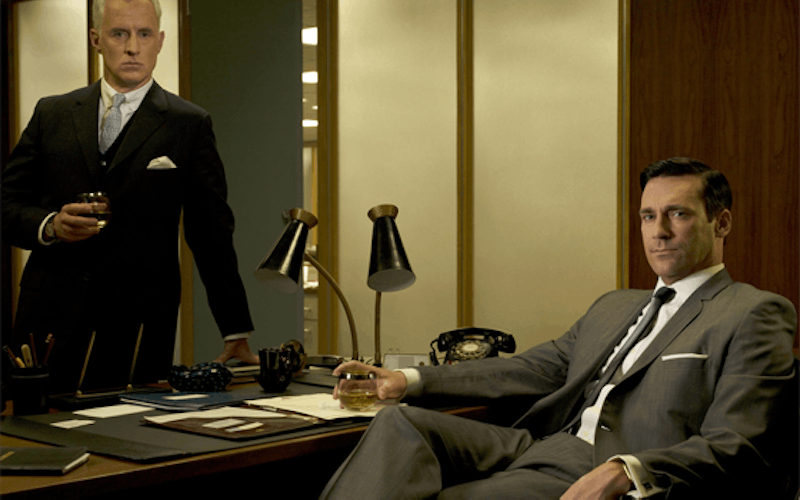
TV
Moral Reckoning on ‘Mad Men’
How do I know that “Mad Men” has reached a new level of artistic maturity in its fourth season? I no longer want to have a drink while watching it.
From the start, this AMC cable series about an advertising agency in 1960s Manhattan has been lubricated by alcohol. Swanky drinking has been omnipresent, from the three martini lunches to the fully stocked bars in each executive’s office. Whenever one guy stops by another’s desk, they instinctively pour each other a drink.
Although the show has occasionally nodded to the dark side of this behavior – in season two, copywriter Freddy Rumsen (Joel Murray) has a mortifying, alcohol-induced accident in the office – for the most part drinking (and smoking) is part of the show’s glamorous image. It’s given the same retro sheen as the period costumes and décor. Pouring a nightcap of my own before each episode felt like part of the fun.
Not anymore.
Characters other than Freddy have hit rock bottom this season, and not only because of their drinking habits. All sorts of chickens have been coming home to roost, especially for Don Draper (Jon Hamm), the central figure on the ensemble show. Last season concluded with the break-up of Don’s marriage to Betty (January Jones) due to dishonesty, neglect and adultery on both of their parts. No longer the advertising bigwig triumphantly returning home to his picturesque suburban home and family, Don lately has been shuffling, more soused than usual, into a dark, dingy and lonely apartment.
Don’s womanizing, meanwhile – which has previously been sold as part of his charm – is now seen as an ugly truth. More than once so far this year Don’s advances on various dates and/or innocent bystanders have been rejected, while his drunken coercion of his secretary has led to a full-scale blow-up at the office. Told to move on by Don – “We’re both adults,” he shrugs – she hurls a paper weight at him instead.
So far that has been the definitive scene of this fourth season – Don being called out for his sins. As “Mad Men” proceeds, will it move on from these confessions to a phase of forgiveness and eventual redemption? I’m not sure. All along, I’ve been afraid of following this show into the 1970s, not only because the wardrobes will take a dismal turn, but also because that distressed and disillusioned era would seem to hold little hope for these increasingly beaten-down characters.
There is promise, though, and it’s found in an unlikely person: Freddy Rumsen. After being fired for his drinking debacle in season two, Freddy has resurfaced this year, having joined an alcoholics support group. Fresh and stable, he’s in stark contrast to most of the others in the office. “Mad Men” fans: Do you see this as a sign of better days ahead, or false, fleeting hope for characters that are irretrievably doomed?
Topics: TV, Culture At Large, Arts & Leisure, Entertainment